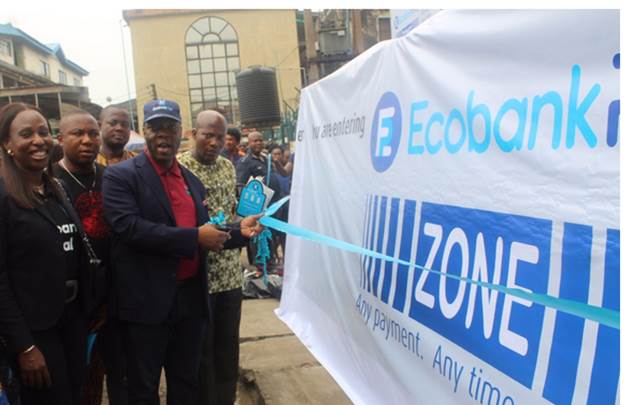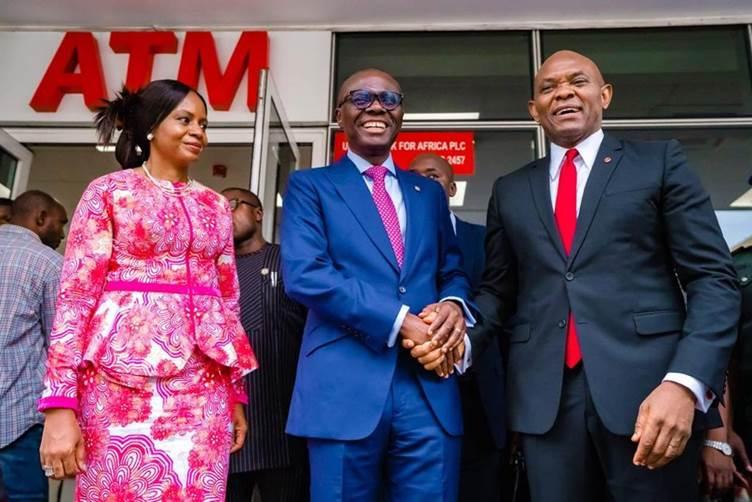The Managing Director and Chief Executive Officer of Heritage Bank Plc, Mr. Ifie Sekibo has revealed that the bank is strong, fit and competent to do nits businesses. This is contrary to some media reports some time ago that the bank is illiquid.
Speaking on the negative reports on the bank by a section of the media few weeks ago, he said “In that outflow period, over N300 billion left our system and came back into our system, because people have realised that it is all false”.
“First, they said the next bank the Central Bank of Nigeria (CBN) would take over was going to be Heritage Bank. It is not true! The central bank cleared that issue. Again, some people believe that if you don’t sell foreign exchange (FX) to them, then you are illiquid.”
Sekibo explained the fact that a bank was not able to source the amount of FX demanded by a customer, either from the central bank or other sources did not mean the bank had liquidity problem.
He defended the acquisition of Enterprise Bank, saying “We made a wise business decision to acquire Enterprise Bank and we have not regretted that decision because we have been able to leverage on the 160 branch network of the defunct bank. I must, however, add here that although the acquisition remains one of our remarkable business decisions, the challenge we have is with the people whom we inherited.
But the apex bank had also consistently argued that the books of the bank is not in reds, saying there is no cause for fears as the bank is strong, fit and ready to fly.
Sekibo made it clear that “We are strong as a financial institution, we have very good shareholders’ fund, we are profitable and we would remain profitable. Customers’ deposits are safe and there is nothing wrong with the bank. We meet every obligation and we are a service company in the business of banking. The customer is priority and customers’ safety influences our decision and we are destined for great things.”
“It is not true that we are illiquid, we have always been liquid. It is true that the whole industry faced some form of liquidity challenge when we all moved monies into the Treasury Single Account.
“So, a customer makes a request overnight for N2 billion or N3 billion, and you tell him to allow you pay him over two days, and they shout, thinking it is illiquidity. It is not! It has to do with the management of your liquidity position,” Sekibo noted.
Though he dared to say that “Since June that this negative press started and till today, our doors have not closed for one day, and “Every customer that comes in, gets his money,” Sekibo admitted that there were moments when payments were delayed for a few hours in order to put things in order.
He said “Naturally, you gauge your inflows and outflows and know how to manage them. And if anybody would look at it, we have over this period because of the negative press, not that the negative press is true, raising people’s anxiety, some took their money away from the bank, and when they found out that nothing happened to the bank, they brought back their monies”.
Explaining more on the buy over of Enterprise Bank, Sekibo noted that “When we acquired the bank, we ensured that we retained its workforce and integrated them into ours at a time we had just 11 branches. We said after a year we would evaluate these staff and those who don’t identify and can’t fit into our overall business vision would have to go. We have concluded that now and each time we want to implement this key business decision, we begin to experience a lot of negative press reports. This is more than a coincidence.”
“So, we are saying there is no such thing as illiquidity and we are not insolvent. We are very liquid, we are meeting our obligation and we would continue to meet our obligations. No bank today can say every customer that comes into their banking hall, they can pay them all. And when you have a challenging situation like we have today, the chances are that there would be gaps here and there, but in the long-run, you meet your obligation and pay them, which is most important to the customers.”
“In today’s market, if I have to take money from bank B, I would give them treasury bills in replacement. It is a treasury play. If I say bank A, give me N1 billion, I must give bank A N1 billion worth of treasury bills. That is in lieu of cash. When I get my cash, I return back my N1 billon and collect back my treasury bills and keep. When they don’t have, they would give me same treasury bills and I give them cash. That is what the interbank market is all about.
“Now, some banks have relationship with other banks that don’t require them to give treasury bills, just the money. We call that clean lines. As a new bank, I don’t have a clean line with anybody. So, every bank that gives me N1, I give them corresponding treasury bills, which means I must be strong. So, while you call it borrowing, for us, it is a treasury play,” Heritage bank boss summed up.








